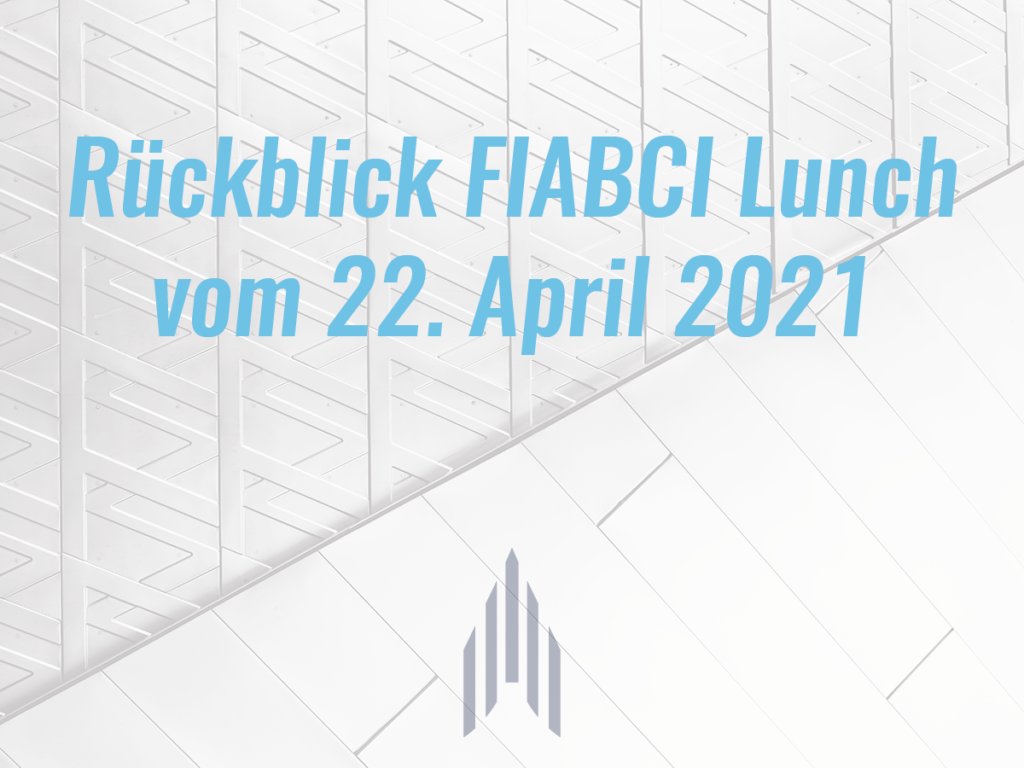This year, the FIABCI-SUISSE lunch meeting originally planned in Bern could unfortunately only be held as an online event. Despite the coronavirus, FIABCI members once again had the opportunity to listen to two very interesting speakers, ask questions and exchange ideas with each other afterwards.
In their presentations, Andreas Binkert, President of the 2000-Watt Smart Cities Association, and Roland Hunziker, Director of the World Business Council for Sustainable Development (WBCSD), highlighted the opportunities offered to the construction and real estate industry by the use of energy-efficient solutions in building operations. This was particularly true with regard to the real estate industry's contribution to the national CO2 reduction pathway.
Andreas Binkert reported on the major goal of "net zero" in the sustainability debate and noted that many people probably don't know what this really means and how to get there. However, it becomes more concrete when we talk about achieving the 2,000-watt society. Many projects are already being planned and implemented - but there is still a long way to go to achieve truly sustainable smart cities. Switzerland is currently at the 5,000-watt consumption level nationwide. By comparison, the EU is at 6,000 watts and India, for example, is at just 800 watts. However, due to population growth, technologization and industrialization, Switzerland is moving in the opposite direction towards 2,000 watts - and will probably not exceed this value in the near future, as the entire western world has already done. Strategies are therefore also needed for development on the subcontinent, just different ones from ours. Switzerland's goal is the 2,000-watt society in 2035 - but some additional efforts will be needed before this mark is reached, says Binkert.
For Roland Hunziker from the WBCSD, an emissions-free building stock is the big goal. His institute recently published the report "Vision 2050 - Time to Transform". According to Hunziker, there are generally three major problems with the sustainability goals that have been set. These include social inequality, climate change and, fundamentally, the different interpretations and definitions of the term sustainability. He named the creation of a so-called circular economy, decarbonization and the preservation of biodiversity as important steps in the development process. With regard to the existing and new building stock, other challenges also emerged, such as ambitious climate targets, pollution in cities, too little inclusion in metropolitan areas and the immense consumption of resources. "You just have to bear in mind that globally, we build on an area the size of Paris every five days," says Hunziker. Another problem is that the construction sector and the real estate industry are among the least digitized sectors. There is a need to catch up here. What is needed in our industry is a "radical reduction in gray emissions". The fragmentation of the construction and real estate industry into many individual silos is also causing difficulties. There needs to be a rethink and a change of direction here.
Author: Mathias Rinka
Date: April 30, 2021

